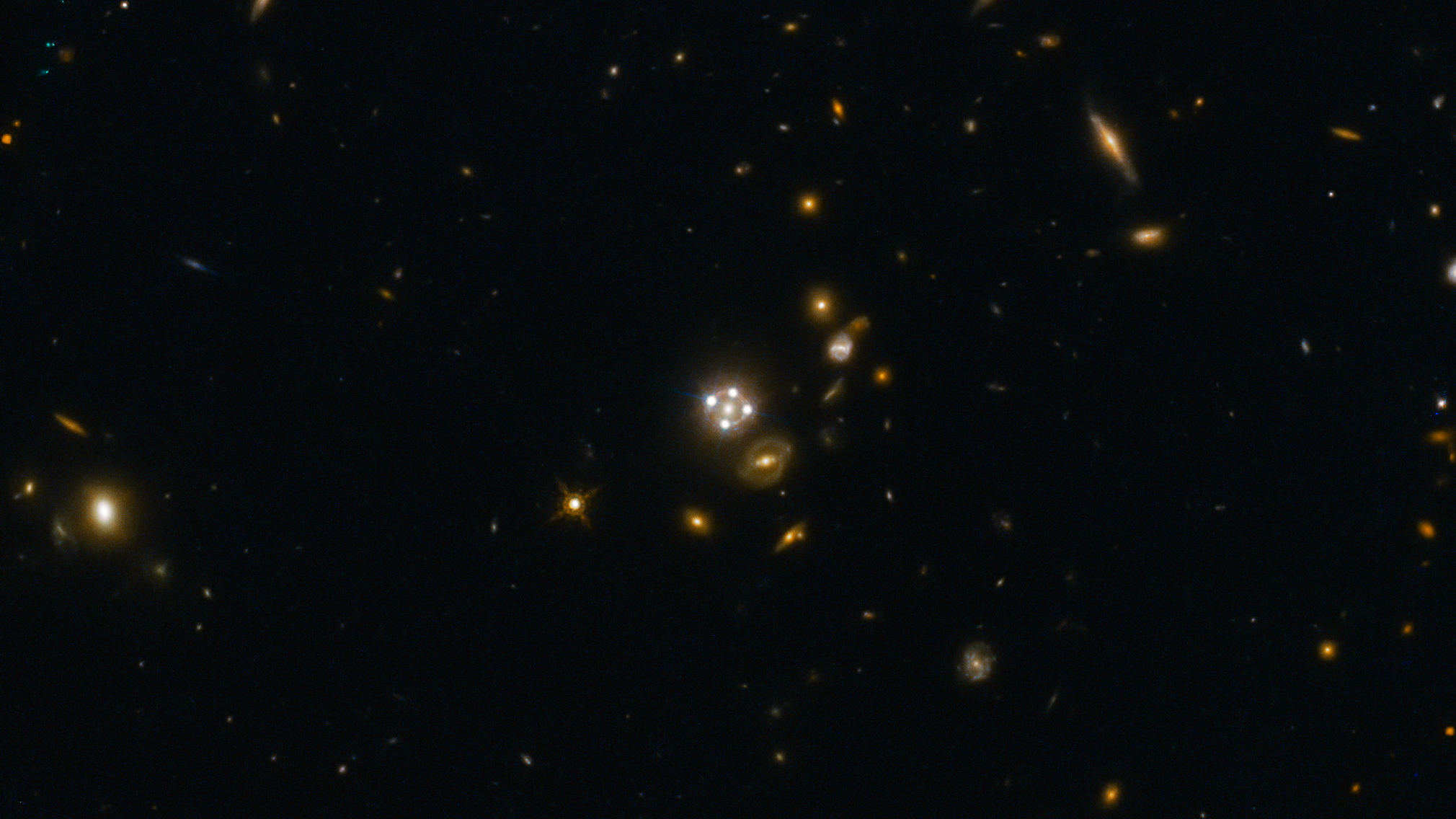The Universe is expanding faster than we thought
Latest research hints at 'new physics'

You know how the Universe began, right? The Big Bang, about 14 billion years ago, when everything we know exploded out of nothing.
Well, that explosion is still going on. In 1929, astronomer Edwin Hubble (who the telescope is named after), observed that distant galaxies in the sky are moving away from us, indicating that the universe is still expanding at a rate called the "Hubble constant".
Over the years we've made more and more accurate calculations of that rate of expansion as our technology has improved. Now, by using galaxies as enormous lenses, astronomers have made a new calculation, but there's one problem – it doesn't quite line up with other estimates.
Points of reference
The figures, arrived at by an international team of physicists named (brilliantly) H0LICOW, were obtained by looking at five different galaxies using space telescopes. They agree quite well with other measurements using stars and supernovae as points of reference.
But they don't agree with results obtained by the European Space Agency's Planck satellite, which monitors the cosmic background radiation of the Universe. And that's exciting, because it suggests that we might have something wrong in the way we understand physics.
High precision
“The expansion rate of the Universe is now starting to be measured in different ways with such high precision that actual discrepancies may possibly point towards new physics beyond our current knowledge of the Universe,” said Sherry Suyu, who led the H0LICOW team.
She added: "The Hubble constant is crucial for modern astronomy as it can help to confirm or refute whether our picture of the Universe – composed of dark energy, dark matter and normal matter – is actually correct, or if we are missing something fundamental."
Get daily insight, inspiration and deals in your inbox
Sign up for breaking news, reviews, opinion, top tech deals, and more.
